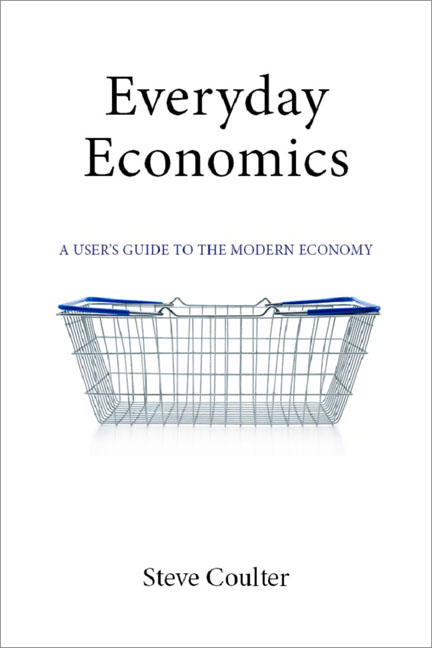Book contents
- Frontmatter
- Contents
- Preface and Acknowledgements
- 1 Economics: What is it Good For?
- 2 Knowledge is Power: Education and Training
- 3 Let’s Get Busy: Work and Occupations
- 4 Get Well Soon: Health and Healthcare
- 5 Making the World Go Around: Money, Banking and Personal Finance
- 6 Home Sweet Home: The Housing Market
- 7 Shop Till You Drop: Shopping and Consumption
- 8 From Cradle to Grave: Benefits and Welfare
- Index
3 - Let’s Get Busy: Work and Occupations
Published online by Cambridge University Press: 09 August 2023
- Frontmatter
- Contents
- Preface and Acknowledgements
- 1 Economics: What is it Good For?
- 2 Knowledge is Power: Education and Training
- 3 Let’s Get Busy: Work and Occupations
- 4 Get Well Soon: Health and Healthcare
- 5 Making the World Go Around: Money, Banking and Personal Finance
- 6 Home Sweet Home: The Housing Market
- 7 Shop Till You Drop: Shopping and Consumption
- 8 From Cradle to Grave: Benefits and Welfare
- Index
Summary
Work saves a man from three great evils: boredom, vice and need.
VoltaireKey questions
• How does the labour market function and how are wages set?
• How does the work we do impact the wider economy?
• Can the government intervene to solve unemployment?
• What is the future of work?
Summary
Most of us spend most of our lives at work, and it is a crucial part of the economy. The labour we provide generates wealth for the wider economy and taxes for the government to spend on public services. But the world of work is complex and daunting, especially when first starting out. The range and quality of jobs available reflects many things: the structure and strength of the national and international economy; the health of particular business sectors; the present vibrancy and future plans of individual employers; and how each and every employee meshes with this – what they have to offer, in other words. Jobs also vary widely in terms of how secure they are, their hours and conditions, and the pay and other benefits on offer. What determines this, and, given the importance of work to society, should more be done to protect jobs and/or help the jobless back into employment? Meanwhile, the work we do and the wealth our labour creates drive the economy and generate the taxes to pay for the services we consume – health, welfare and defence, for example. But with an increasingly mobile and freelance workforce it can be difficult for governments to make sure highly paid individuals pay their fair share of tax. This chapter explains why the workplace is organized the way it is and how it is changing.
Main topics and theories covered
Theories of unemployment and labour markets; the political economy of skill formation; active labour market policies; the economics of job search; inequality and the labour market; the future of work.
Introduction: why work?
Apart from those of us lucky to be born wealthy enough to not have to work, or unlucky enough to be unable to work through some disability, nearly all of us are likely to encounter the labour market throughout a good portion of our existence.
- Type
- Chapter
- Information
- Everyday EconomicsA User's Guide to the Modern Economy, pp. 49 - 76Publisher: Agenda PublishingPrint publication year: 2017

